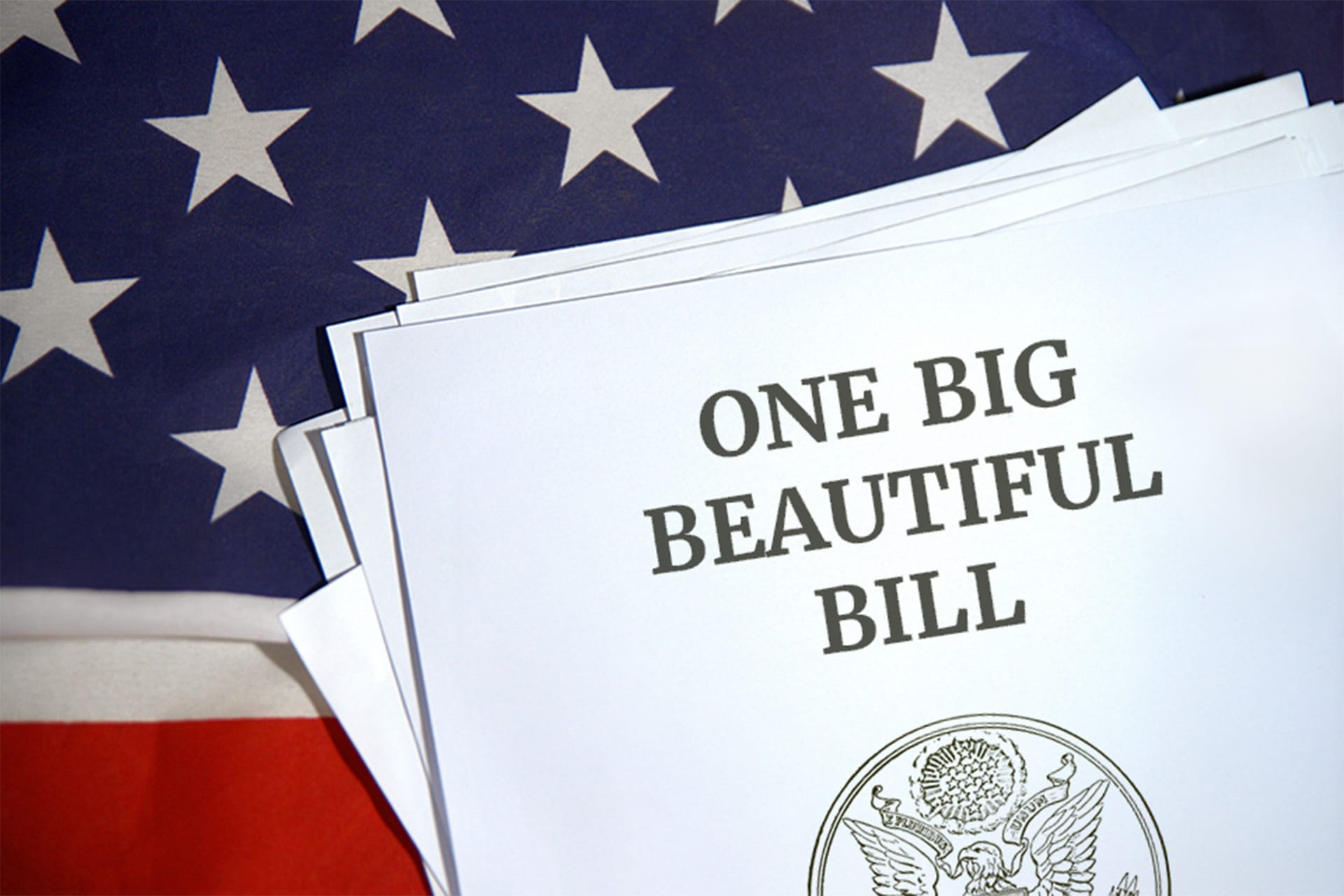Blog Published July 25, 2025 · 5 minute read
Top Line Impacts of OBBBA on US Energy Production
John Hebert

The One Big Beautiful Bill Act (OBBBA), signed into law earlier this month, will have crippling impacts on US energy production in the years ahead. By phasing out clean energy tax credits, placing unreasonable burdens on the use of those tax credits that do remain, and gutting the federal government’s ability to reduce investment risk in emerging technologies, the OBBBA is doing everything but make America more energy dominant.
Below, we highlight five ways the OBBBA hurts American energy; click here for an overview of all the changes OBBBA makes to the clean energy credits.
1. Early phaseout of clean electricity tax credits arbitrarily undermines investment in wind and solar at a time when the US needs to expand grid capacity.
Solar and wind are two of the most mature clean energy technologies that can be deployed today to meet demand. The IRA included two technology-neutral tax credits—the Section 45Y Production Tax Credit and the Section 48E Investment Tax Credit—which helped subsidize investments in clean energy production facilities and the production of clean electricity from those facilities.
But with the OBBBA, projects now need to be placed in service by the end of 2027 to qualify for these credits, down from 2033. With energy demand projected to skyrocket in the years ahead, the U.S. needs to continue incentivizing investments in readily deployable technologies like wind and solar to meet that demand. If we don’t, consumers are likely to see their energy bills rise as a result.
2. Unworkable foreign entity of concern (FEOC) requirements mean that businesses can’t source the materials they need to build facilities if they want to qualify for clean energy tax credits.
The OBBBA severely restricts the ability for private developers to take advantage of clean energy tax credits because it now conditions these credits on highly restrictive and ambiguous content requirements. While the stringency of these restrictions varies between tax credits, they create significant compliance headaches for companies at best and make some credits outright unusable for companies at worst.
While Congress is right to ensure that we should be strengthening domestic supply chains and limiting our reliance on countries like China, the OBBBA doesn’t offer companies a realistic path to address those concerns while still taking advantage of many of these tax credits because they lack any real substance at this point. Without regulatory clarity, companies may hold off on investments in energy for years as they await guidance from the IRS, or forgo tax credits altogether, raising energy prices as a result.
3. The elimination of consumer clean energy credits will increase energy costs for American households and businesses.
The OBBBA fully repeals a number of consumer tax credits that make it cheaper for Americans to install renewable energy systems and make energy efficiency improvements to their homes and businesses. This includes fully eliminating longstanding credits that had been law well before the IRA:
- Section 25D Residential Clean Energy Credit: This tax credit allows individuals to claim credit for 30% of the cost of installing new clean energy property for their homes—solar panels, geothermal heat pumps, small wind projects, and battery storage. The IRA had previously extended the credit until 2032 with an additional two-year phaseout period, but the OBBBA eliminates the credit effective at the end of 2025.
- Section 25C Energy Efficient Home Improvement Credit: This credit allows individuals to qualify for a tax credit of up to $3,200 for certain energy efficiency improvements to their home, like new heat pumps, central AC, and more.
- Section 45L New Energy Efficient Home Credit: This credit provides eligible contractors with a business tax credit for new or reconstructed homes that meet certain energy efficiency standards outlined by DOE.
- Section 179D Energy Efficient Commercial Buildings Deduction: This provision allows building owners to claim a tax deduction for energy efficiency improvements that reduce annual energy or power consumption of certain systems by at least 25%.
These credits were working for American households. Repealing them means higher utility bills, more expensive home repairs, and slower adoption of proven clean technologies.
4. The elimination of the electric vehicle tax credit makes it more expensive for consumers to buy electric vehicles, undermining billions of dollars of investment the auto industry has made in domestic manufacturing for these vehicles.
Republicans are ending the credits for new, used, and commercial EVs seven years early, moving up the expiration date from December 2032 to September 2025. The 30D New Clean Vehicle Credit in particular came with robust content sourcing requirements that created a market for American-made EVs. As a result, there’s been a surge of new investments and jobs in vehicle assembly, battery manufacturing, and critical mineral processing across the country based on the assumption that these credits would continue.
At a time when China continues to outpace us on EV investments and is increasingly gobbling up global market share, Republicans have repealed the very policies that are helping us stay competitive and are putting America’s auto industry and auto workers at an even further disadvantage.
5. The bill stifles innovation by gutting DOE’s ability to help de-risk private investment.
The IRA allocated nearly $12 billion for the Department of Energy’s Loan Programs Office (LPO), which works to de-risk innovative new clean energy technologies that are considered too risky for private sector investment. These funds, which largely cover the cost of the government providing loans and loan guarantees, helped expand LPO’s lending authority to about $400 billion, giving the office the ability to facilitate private sector investments in a wide range of clean energy technologies. LPO has used this authority to help finance the construction of new nuclear reactors in Georgia, new critical mineral facilities in Louisiana and Nevada, and new manufacturing of utility-scale energy storage systems in Pennsylvania, among many others.
The OBBBA clawed back the vast majority of LPO’s funding, effectively canceling much of its lending authority. Combining these clawbacks with drastic changes to the tax code, this bill significantly undermines the private sector’s ability to manufacture and deploy innovative new energy technologies.
